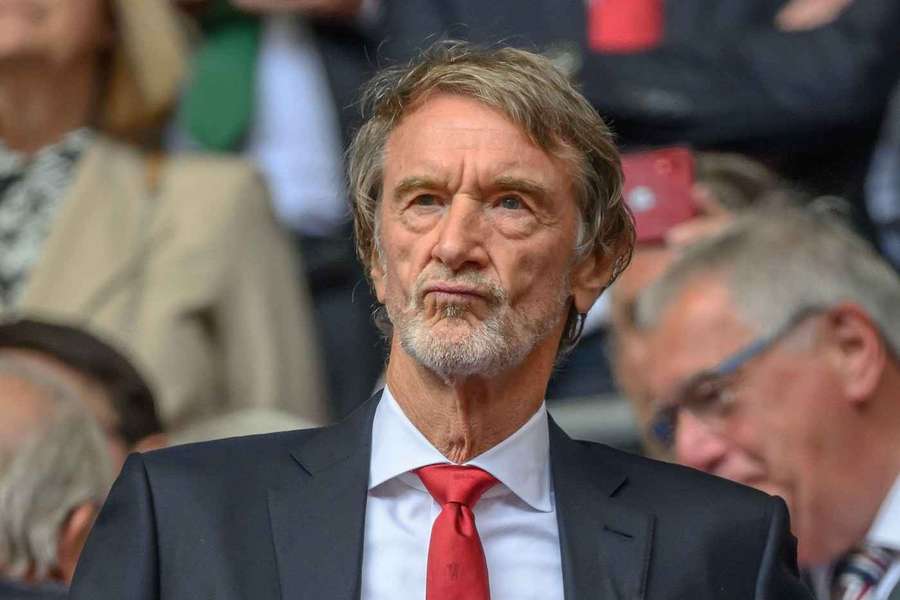The abrupt departure of Dan Ashworth from Manchester United has left fans and pundits questioning the decision-making processes under INEOS and Sir Jim Ratcliffe’s stewardship.
Just over five months into his tenure as sporting director, Ashworth’s exit marks another expensive and controversial chapter in the club’s turbulent recent history.
Announced as a “mutual” decision, Ashworth’s departure has been widely reported as instigated by the club. Sources, including David Ornstein, suggest the decision reflects deeper issues within Manchester United’s football operations. Sky Sports’ Melissa Reddy was blunt in her assessment, calling the move “embarrassing” and accusing INEOS of mismanagement that continues to burden fans financially.
Ashworth’s tenure was touted as a cornerstone of a “best in class” approach to rebuilding United’s football structure. However, his short-lived spell has raised significant questions about the club’s direction. Critics argue that decisions such as Ashworth’s dismissal are emblematic of a leadership style that lacks cohesion and long-term vision.
The financial fallout from Ashworth’s exit will only add to United’s growing costs. The club initially paid Newcastle United between £2 million and £3 million in compensation to secure Ashworth’s services, a move that now seems futile given his brief tenure. The costs of his departure, coupled with the recent £10.4 million spent sacking Erik ten Hag and hiring Ruben Amorim for an additional £11 million, underline a pattern of expensive missteps.
Beyond the monetary implications, the handling of Ashworth’s role has sparked concerns about the club’s internal dynamics. Reports indicate Ashworth felt sidelined from key decisions, with INEOS executives Omar Berrada and Dave Brailsford reportedly taking the lead on pivotal calls. The appointment of Ruben Amorim as manager appears to have been the tipping point, with Ashworth favoring a British coach to lead the team.
Advertisement
Latest Press Conference
We’re on Social Media



This power struggle further highlights a lack of alignment between the club’s sporting ambitions and its operational leadership. While sources downplay any major fallout, it’s evident that the working relationship between Ashworth and INEOS had soured from the start.
Criticism has not been limited to Ashworth’s departure. INEOS has also faced backlash for other financial decisions, including raising ticket prices to £66—a move that incited protests from fans. The perception that “ordinary people” are being forced to bear the brunt of the club’s mismanagement has only fueled discontent among supporters.
Reddy’s commentary reflects growing frustration within the fanbase. The sentiment is that decisions made under Ratcliffe’s leadership are compounding the financial and operational woes that began under the Glazer family. While INEOS has attempted to position itself as a decisive operator willing to make bold changes, its actions have often appeared disjointed and reactionary.
Reasons
The reasons behind Ashworth’s departure have drawn scrutiny from other football insiders. TalkSPORT reported that personality clashes with key figures like Berrada contributed to the breakdown. Fabrizio Romano suggested Ratcliffe was unhappy with Ashworth’s handling of the summer transfer window, a viewpoint seemingly echoed by Ratcliffe’s remarks about the importance of recruitment.
Despite the turmoil, United’s leadership appears to have a plan for the future. Journalist Ben Jacobs reported that the club may avoid hiring an immediate replacement for Ashworth. Instead, technical director Jason Wilcox and interim recruitment director Chris Vivell could assume expanded roles. Meanwhile, Brailsford and Jean-Claude Blanc are expected to maintain significant influence over recruitment decisions.
The decision to delay hiring a new sporting director just weeks before the January transfer window raises further concerns about United’s preparedness. Questions linger about whether the current setup can effectively address the club’s immediate and long-term needs.
As fans grapple with the fallout from Ashworth’s departure, criticisms of Ruben Amorim’s managerial style have added to the discontent. Pundits have questioned his frequent defensive substitutions, a tactic reminiscent of Ten Hag’s late-stage tenure, which many believe contributed to his downfall.
Manchester United’s struggles under INEOS’ ownership reveal a club at odds with itself, grappling with decisions that lack clarity and consistency. For a fanbase desperate for stability and success, the departure of Ashworth is yet another blow in a series of missteps that have left many questioning the direction of the club.
In the wake of these developments, United’s leadership faces mounting pressure to deliver results on and off the pitch. Whether INEOS can reverse the narrative and restore faith among fans remains to be seen, but for now, the spotlight remains firmly on their next moves.
